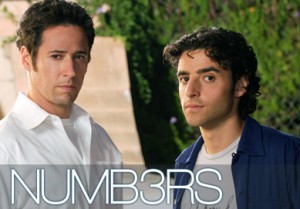Dream author gig: Hollywood script consultant
I love pretty much anything Marcia Yudkin writes, so when she offered to write a guest blog post outlining how you can use your knowledge from book research — your intellectual capital — to earn money as a TV or movie script consultant, I jumped at the chance. Marcia is the author of Publicity Tactics (read my review of that book on this blog), Meatier Marketing Copy: Insights on Copywriting That Generates Leads and Sparks Sales, and 14 other books. One of her newest — and my current favorite — is 125 Ways to Turn Content into Money, from which you can learn more about becoming a script consultant as well as 124 other ways to make money from what you know.
Dream author gig: Hollywood script consultant
By Marcia Yudkin
Bright lights. High glamour. Keen challenges. For authors, it’s the next best thing to having a movie made based on your own work: being a behind-the-scenes consultant on a documentary, feature film or TV series. While it sounds like fantasy, it’s an exciting reality for some authors and experts who use what they know to help keep works of the imagination within the realm of the probable.
Daniel Czitrom, for example, teaches history at Mt. Holyoke College and is the author of a forthcoming book about turmoil in the 1890’s New York City police department. For six years, he has served as a consultant to the new BBC America dramatic series “Copper,” which takes place in New York City during the Civil War.
Czitrom would identify plot moves in the script that didn’t match social circumstances at the time, such as it being unlikely that an African-American character lived in a certain city neighborhood. In the spring of 2012, the show flew him up to Toronto, where the series was being shot, so Czitrom could provide on-set feedback on anything to do with the characters, costumes or action that struck him as historically inaccurate.
Content experts get paid to provide advice
 While the relevance of history to a narrative set in the past seems rather obvious, experts in a broad range of other subjects get paid to advise entertainment projects: law, psychology, technology, finance, futuristics, cooking, antiques, deaf culture, survival skills, animal behavior and more. In several of these fields, having published a book demonstrating a depth of specialized knowledge can put you in the running for the position of script consultant, whether or not you also have formal academic credentials.
While the relevance of history to a narrative set in the past seems rather obvious, experts in a broad range of other subjects get paid to advise entertainment projects: law, psychology, technology, finance, futuristics, cooking, antiques, deaf culture, survival skills, animal behavior and more. In several of these fields, having published a book demonstrating a depth of specialized knowledge can put you in the running for the position of script consultant, whether or not you also have formal academic credentials.
Some of the examples of such gigs I discovered in a recent online search sound like incredible fun. For instance, robotics expert Malcolm MacIver has advised two science fiction productions on concepts for their story lines and the terminology to use when a character is taking apart a robot. For the CBS crime series “Numb3rs,” several mathematicians provided cutting-edge story concepts, corrected errors in dialogue, created relevant equations for chalkboards in the scenes, and thought up brainy T-shirt designs for fans of the show.
Tips for getting primo gigs
How to land one of these gigs? Usually the experts get a call out of the blue by someone working on a production. It undoubtedly helps to be seen as interested in applying knowledge to entertainment projects. Before being tapped for “Copper,” for example, Czitrom had appeared as a talking head in various PBS documentaries. MacIver writes a blog called “Science, Not Fiction,” for Discover Magazine’s website, commenting on themes in films like “Rise of the Planet of the Apes,” “Thor,” and “Captain America.”
There’s no reason why you can’t anoint yourself as the go-to blogger on the authenticity of, let’s say, meals served in Hollywood historical dramas.
Getting listed in certain directories might help attract the interest of producers. These include:
Play it up
Once you’ve done anything along these lines, mention it in your bio, and more entertainment-related work often comes your way. Attorney Charles Rosenberg, for instance, has consulted to four prime-time TV shows: “LA Law,” “The Practice,” “Boston Legal” and “The Paper Chase.”
Producers are looking for a certain kind of cooperative attitude in their technical consultants, says backwoods guide Tim Smith, a client of mine who advised a Discovery Channel survival show set in Alaska in which the star lost a ski while heliskiing and had to improvise his way back to civilization. For 15 12-hour days, while receiving his regular daily rate plus expenses, Smith advised the crew on such matters as how the star could quickly catch a salmon without equipment. “They said some other experts had oversized egos and didn’t actually have the skills needed,” he told me. “You have to understand it’s all about the show, not you. You have to be a team player.”
Marcia’s book outlines 125 ways to turn your book’s content into money, from developing apps to creating workbooks. How have you earned money from your what you learned writing and researching your book? We’ll see if your tactic is — or isn’t! — in her book.
Hollywood image ![]() Mark Vegas via Compfight
Mark Vegas via Compfight
Like what you’re reading? Get it delivered to your inbox every week by subscribing to the free Build Book Buzz newsletter. You’ll also get my free “Top 5 Free Book Promotion Resources” cheat sheet immediately!


One Comment